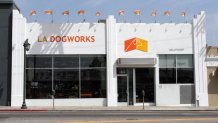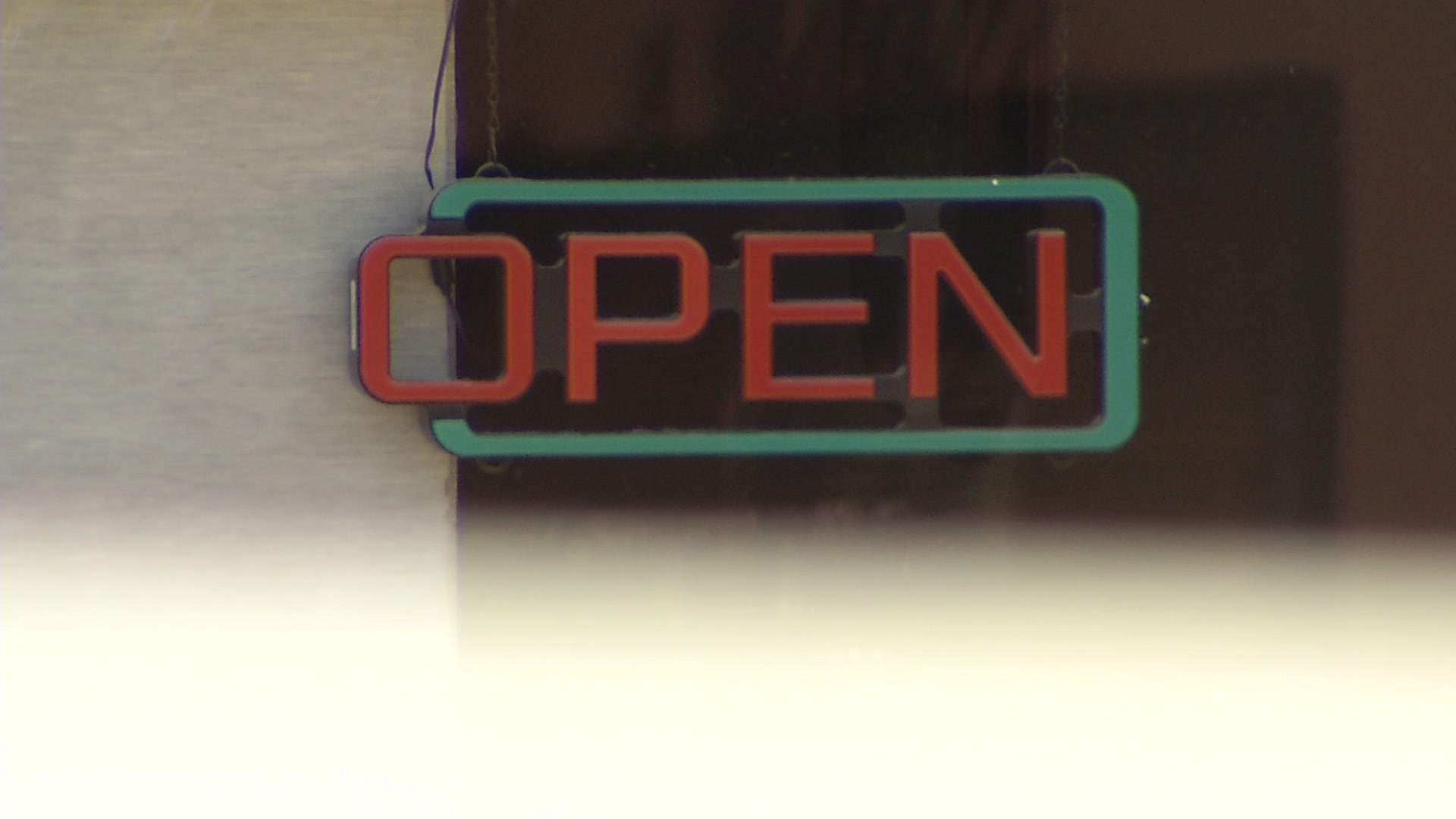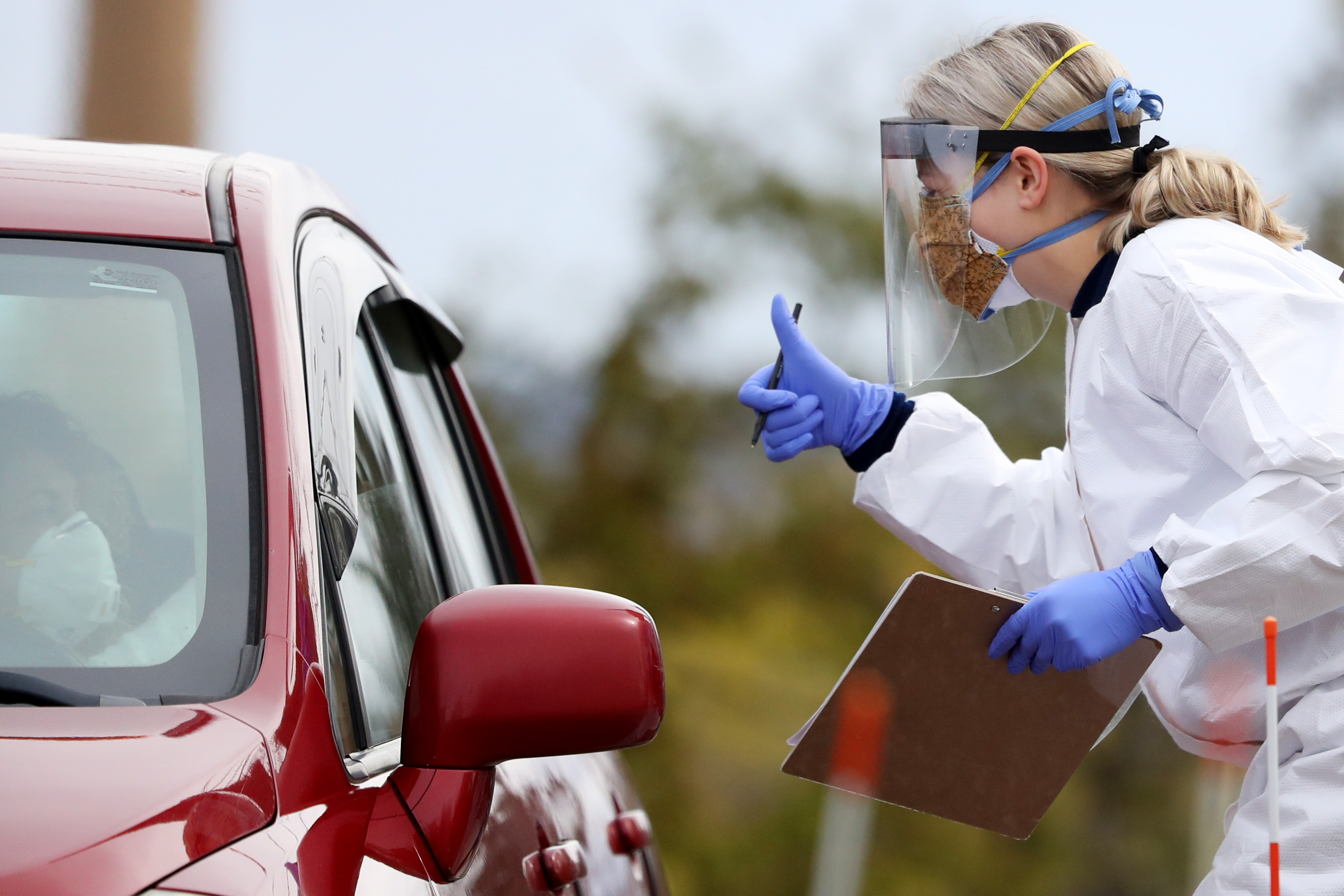When things seem unfamiliar and lingering uncertainty creeps into daily life, it helps to have someone who can provide unwavering companionship, reliable comfort and something familiar each day.
For many households, a dog offers all that and more.
Rebound: How Small Businesses Are Recovering From the Pandemic
So when the nation’s most populous state announced in March an unprecedented move to close most businesses in California, a nearly two-decade-old Los Angeles business that offers dog boarding, daycare and a wide range of other services faced tough questions.
Most importantly, what happens to a dog daycare center when the dogs stay home?

“The initial response was, ‘What are we going to do?” LA Dogworks owner Andrew Rosenthal said. “We rely on dogs. We rely on people bringing their dogs and trusting us.
“Our kennels were close to full all the time. But now that the pandemic has hit, most people are keeping their dogs at home.”
Before the pandemic, roughly 40 to 70 dogs per day were staying inside the 7,500-square-foot gleaming white building on Hollywood Boulevard that houses a 2,500-square-foot indoor dog park. That daily average is down to just over a dozen dogs since California became the first state to announce shutdown measures to stop the spread of the coronavirus.
Some dogs have been regulars at LA Dogworks, a full-service, 24-hour dog care center that opened in 2004, for nearly their entire lives. The pandemic threatened to break up routines that had been in place — for dogs and families — for more than a decade.
Then, reopening guidelines announced for some businesses in the weeks following the initial closures extended a lifeline.
“Slowly, but surely, people started to come back,” said Rosenthal. “And, once Gov. Newsom declared day care and pet grooming as an essential business, we opened up, and it started to pick up slowly.”
How Coronavirus Has Grown in Each State — in 1 Chart
This chart shows the cumulative number of cases per state by number of days since the 50th case.
Source: The COVID Tracking Project
Credit: Amy O’Kruk/NBC
About two dozen staff members worked at Dogworks before the pandemic, helping the business with grooming, boarding, daycare, the mobile drop-off and pick-up Fetchmobile operations and other services. That number dropped to about six or seven people in the immediate aftermath of the shutdown announced in mid-March.
By August, more staff members were hired, but Dogworks remains well below pre-pandemic staffing levels. The short-staffing situation requires employees to perform multiple jobs. During any given workday, an employee might sanitize the dog park, drive dogs to and from their homes and work the reception area.
The downside is that lack of revenue. We’re trying to make ends meet. And, hopefully, we’ll be able to get through this. I know we will.
Andrew Rosenthal, owner of LA Dogworks
“It’s just less people doing pretty much the same amount of work, if not more,” Rosenthal said.
Dogworks applied for, but did not receive a Paycheck Protection Program loan during the first round of applications, but did receive a loan during the second round. That money hasn’t been touched, yet, Rosenthal said. The business also applied for a Small Business Association loan.
Rosenthal created LA Dogworks in 2004. The former lifestyle and fashion photographer, who had moved to LA from New York City, couldn't find what he was looking for in a dog care center, so he decided to create something of this own.
“I avoided the cutesy stuff and really built it for dogs instead of people,” said Rosenthal.
This isn't the first time LA Dogworks has faced a crisis. In December 2010, an early morning fire destroyed the building — all 118 dogs were removed to safety.
The team faced a year-long rebuilding process.
When compared to the devastating fire, the pandemic has its own set of challenges, Rosenthal said. One thing in particular feels different.
“The fire was a tangible thing,” said Rosenthal. “There was a beginning and an end, and then a new beginning.
“With this thing, it’s just a pain in the butt. It’s just this not knowing, this unsure feeling. Like, when is it going to happen?”
Los Angeles has had the most businesses of any U.S. city close since the the beginning of the pandemic, according to a June 2020 Yelp local economic impact report. About 4,800 of those businesses may close permanently, according to the June report.
Rosenthal, who said he is optimistic about the business’ future, characterized the pandemic period as one of evolution for LA Dogworks. The pandemic timeout allowed the team time to paint, re-polyeurathe the floors and other complete other maintenance projects. Moving forward, they’ll focus on developing a canine enrichment program — an intensive rewards-based training program that structured to help dogs learn by doing things repetitively.
“The downside is that lack of revenue. We’re trying to make ends meet,” said Rosenthal. “And, hopefully, we’ll be able to get through this. I know we will.”
About Rebound
COVID-19 has impacted every facet of our lives. For small business owners, those impacts are even greater. To better tell those stories, we decided to launch a series about how small businesses are faring throughout the coronavirus. But a raging pandemic presents some obstacles for traditional journalism. Business restrictions, reduced hours of operation, and social distancing guidelines have changed how journalists tell their stories.
So we flipped the script.
We identified six small businesses across America and supplied them with a camera. In REBOUND, these businesses take you behind the scenes during COVID-19, to show you just how much things have changed throughout the pandemic.
REBOUND tells the stories of these small businesses and how they are bouncing back from an unforeseen pandemic.



